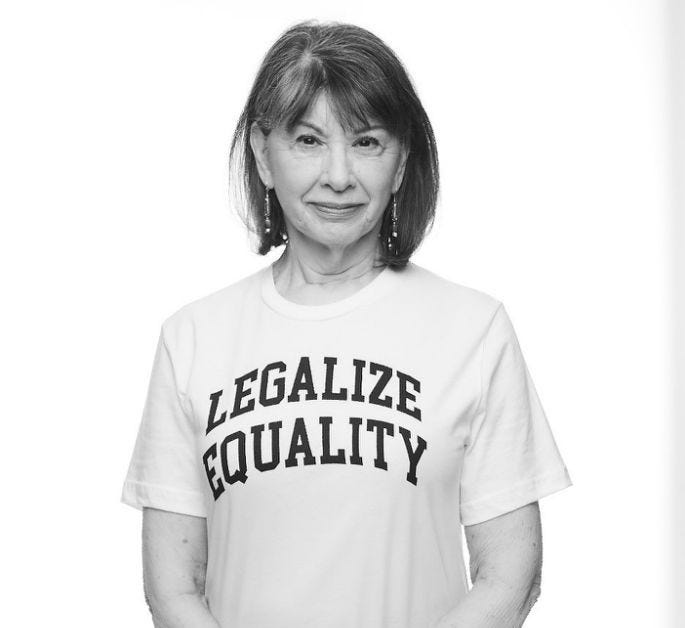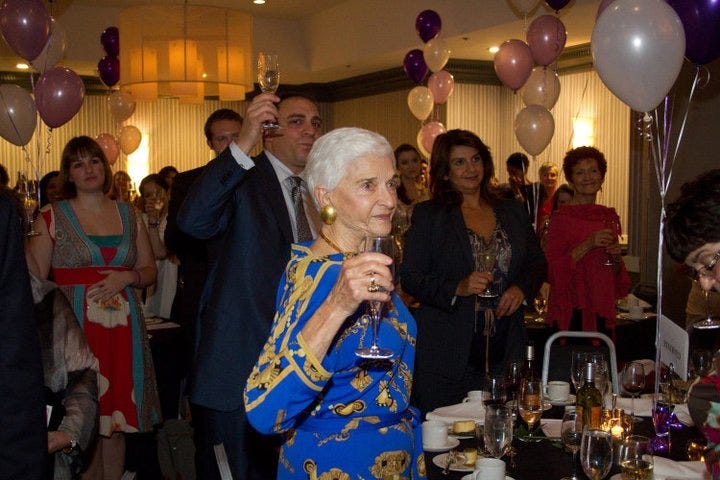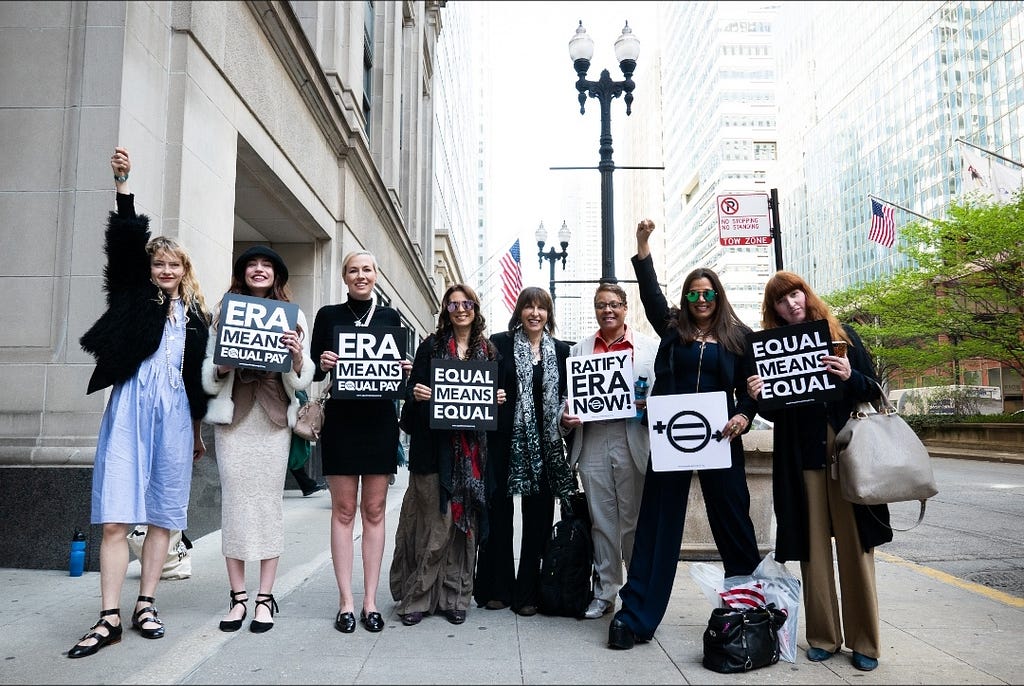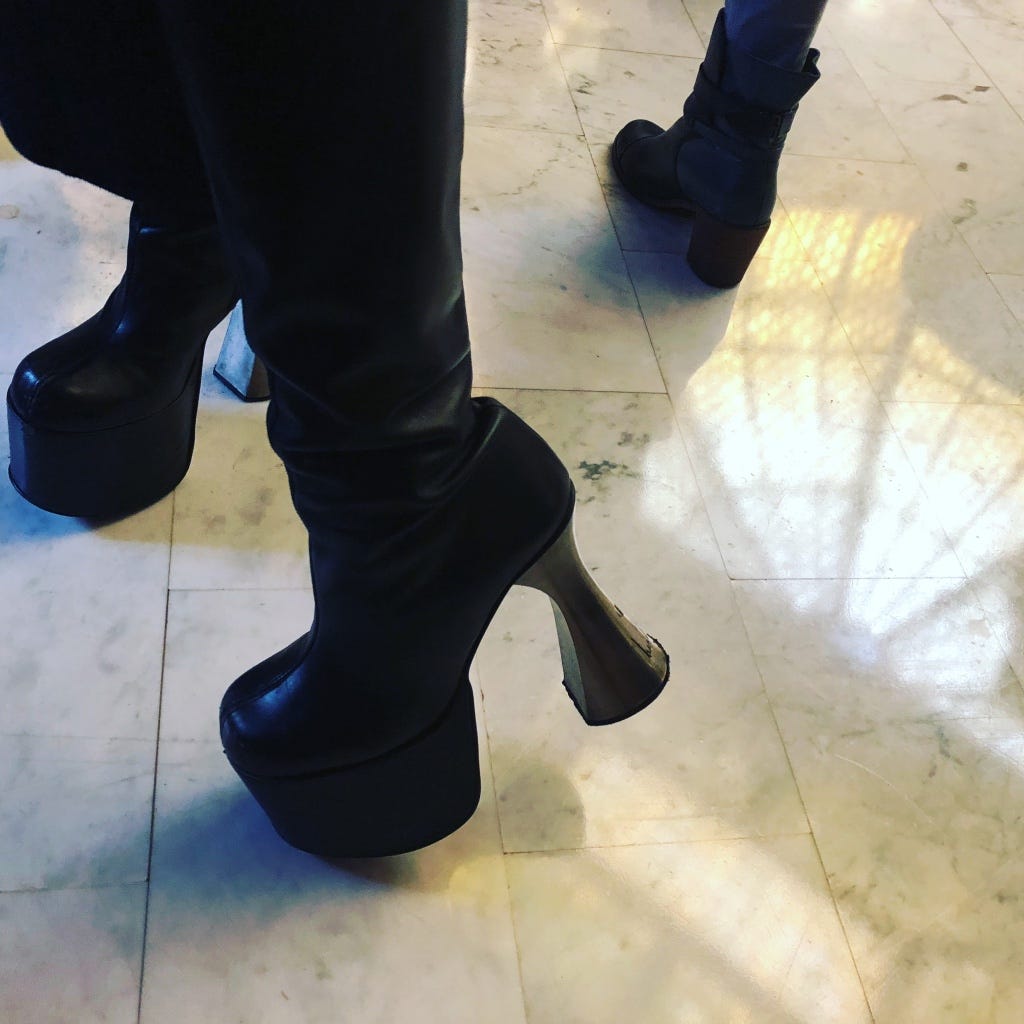Equal Doesn’t Mean Equal Yet but We’re One State Closer: the ERA, Lessons Learned, and The Story…


Issue 52 — June 1, 2018
Counterbalancing Roseanne Barr’s hideous racial slur, and on par with the good news of Starbuck’s anti-bias training for 180,000 employees in the US, the Illinois legislature voted to ratify the Equal Rights Amendment this week.
The amendment’s 23 words simply say: “Equality of rights under the law shall not be denied or abridged by the United States or any State on account of sex.”
“Who,” you might rightly ask, “would oppose that? And aren’t women already guaranteed equal rights?”
To answer those questions, I must tell you a story or two.
My friend Carol Jenkins, a board member of the ERA Coalition, told me over lunch almost two years ago about its revitalized attempt to get the Equal Rights Amendment into the U.S. Constitution. I also knew that filmmaker Kamala Lopez (currently a member of Take The Lead’s 50 Women Can Change the World in Media and Entertainment cohort, I am proud to say) had been using her filmmaking skills to call attention to the urgency to pass the ERA for years with minimal media attention.
“This is where I came in,” I said.
This renewed effort, founded in 2014, comes almost a century after suffragist leader Alice Paul drafted the ERA in 1923, and almost half a century after the ERA campaign fired up my activism as a young woman.
Paul was one of the few suffragist leaders who recognized that getting the right to vote in 1920, after 77 years of trying, was not the end of the fight, but merely one necessary, albeit major, victory on the path to full legal and social equality for women.
Fast forward another 70+ years from the ratification of the suffrage amendment.
I was a young mom teaching kindergarten at Head Start in Odessa Texas. I met Texas State Representative Sissy Farenthold there, in a cavernous hall filled with supporters of her campaign for governor. I learned that the Equal Rights Amendment would be on the Texas ballot in 1972. Farenthold and Texas state senator and future first African American Congresswoman Barbara Jordan were leading the charge.


Though Farenthold lost her bid for governor, the ERA in both state and federal versions would sail through the state’s constitutional amendment process.
Looking at Texas red state politics today, many of my colleagues cannot believe the scenario. But I was a witness to this history. It taught me the power of grassroots activism and fired me with a passion for civic engagement that has lasted to this day. And the folly of ever thinking the job is done.
The story of the suffrage movement is equally instructive. Most of its leaders declared victory after the passage of the 19th amendment giving women the right to vote. They went on to other causes.
But Paul realized that in a democracy, no victory is secure without a vibrant movement to keep fighting forward. “It is incredible to me,” she said, “that any woman should consider the fight for full equality won. It has just begun. There is hardly a field, economic or political, in which the natural and accustomed policy is not to ignore women.”
I was called to action by learning that there was an utter lack of legal protections for me, my daughters, and all women. Since women were giving birth to everyone, doing most of the educating of the next generation, and beginning to show up in many if not most professions and yet (as happened to me) couldn’t get credit or a credit card without a male cosigner and wouldn’t be considered for certain jobs, let alone get equal pay — the ERA made perfect sense.
Over the years, we fixed many of those injustices. And yet there I was chatting with Carol about this “new” ERA movement, far across the country and a lifetime away from where I had made my first contribution to an ERA campaign, all of $3 tossed into a coffee can.
You might say, oh get over it, So much has changed and women have smashed so many glass ceilings.

That’s true. And yet, so much hasn’t changed or still needs to change, as the #metoo movement has poignantly shown.
In fact, as I look at the #metoo, Time’s Up, #blacklivesmatter, and the racism and sexism that bubbles beneath the surface threatening to erupt like Kilauea — or Roseanne — I feel like Cassandra warning that we should never take a single step forward for human and civil rights for granted.
It’s both a blessing and a curse that 80% of Americans think the ERA has already been ratified and 94% say they agree with it. The curse is that they think they don’t need to work for ERA anymore.
Yet according to ERA Coalition president, Jessica Neuwirth, here are a few of the reasons the ERA is still needed:
· It would lay the groundwork for stronger, more comprehensive laws and judicial tools to combat gender violence and sex discrimination.
· It would create a new basis to challenge unequal pay for equal work.
· It would strengthen protections against pregnancy discrimination.
With women woke and all data pointing to the social and economic value of gender equality, this is the moment. It’s way past time. I’ve joined the Advisory Council of the ERA Coalition, to work alongside Neuwirth, Jenkins, Gloria Steinem, Congresswoman Carolyn Maloney, Lopez, and other notables to take Alice Paul’s statement of simple justice for women across the finish line.

This is where I came into the women’s movement. And this is where I intend to go out — knowing that my life’s mission to advance women to full equality is safe because the women of America have the Equal Rights Amendment. Sometimes leadership is simply about showing up and never giving up.
In case you are wondering, states that have not ratified the ERA are: Alabama, Arizona, Arkansas, Florida, Georgia, Louisiana, Mississippi, Missouri, North Carolina, Oklahoma, South Carolina, Utah, and Virginia.
We only need one more to put women into the U.S. Constitution at last.
Ready to organize?

GLORIA FELDT is the New York Times bestselling author of several books including No Excuses: 9 Ways Women Can Change How We Think About Power, a sought-after speaker and frequent contributor to major news outlets, and the Co-Founder and President of Take The Lead. People has called her “the voice of experience,” and among the many honors she has been given, Vanity Fair called her one of America’s “Top 200 Women Legends, Leaders, and Trailblazers,” and Glamour chose her as a “Woman of the Year.”
As co-founder and president of Take The Lead, a leading women’s leadership nonprofit, her mission is to achieve gender parity by 2025 through innovative training programs, workshops, a groundbreaking 50 Women Can Change The World immersive, online courses, a free weekly newsletter, and events including a monthly Virtual Happy Hour program and a Take The Lead Day symposium that reached over 400,000 women globally in 2017.
